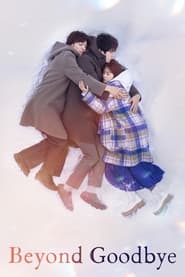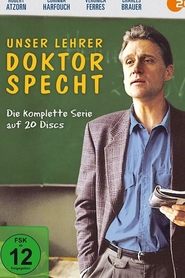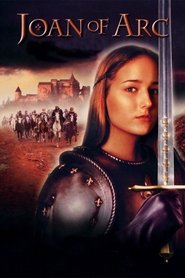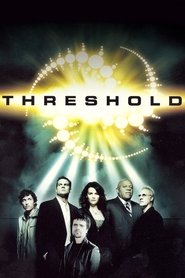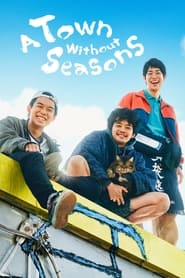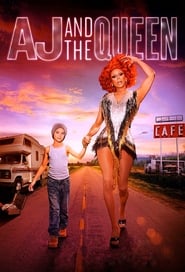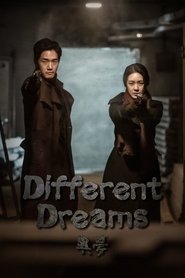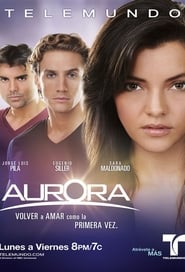Popular Drama TV Series on Tub Tv - Page 337
-
Maria Clara and Ibarra
2022
star 7.2Klay, a Gen Z nursing student who wakes up and finds herself in the world of Jose Rizal’s novels Noli Me Tangere and El Filibusterismo. -
Beyond Goodbye
2024
Beyond Goodbye
2024
star 7.7After losing her fiancé in an accident, Saeko feels an inexplicable connection to a stranger — who, by a twist of fate, received his heart and memories. -
Unser Lehrer Doktor Specht
1992
star 8Unser Lehrer Doktor Specht is a series of family author Kurt Bartsch, directors Werner Masten, Vera Loebner and Karin Hercher, shot from 1991 in Germany. The consequences had a length of 52 or 46 minutes. For subsequent repetitions of the consequences of the first season in about 45 minutes were cut. In addition, they were provided with an alternative, shorter guy, who was also designed in a different font. -
The Good Girls Club
2020
The Good Girls Club
2020
star 5.3The Good Girls Club is a drama series that follows the capital's night, where sensuality and sex mix with politics, security, business and glamour, and which will accompany the story of 3 characters: the security guard, the owner and the new girl. -
El amor invencible
2023
El amor invencible
2023
star 7.4After losing all her loved ones fifteen years ago and believing her babies were killed at the hands of the father of her first love, Leona Bravo embarks on a journey of justice against all those who hurt her. In this process, Leona discovers that her children are actually alive and is reunited with an old friend with whom she finds true love. As a result, she will be torn between her desire for justice and rebuilding her bond with her two children, as well as regaining her faith in love. -
Ultraman Decker
2022
Ultraman Decker
2022
star 7.7Seven years have passed since Ultraman Trigger protected the world from various threats. In the present, Kanata Asumi, who is a positive young man, peacefully lives together with his grandpa. One day, while delivering ordered food, he witnessed a catastrophe: Spheres from the outer space attack Earth and Mars. Motivated by saving the precious lives of the people, he merges with Ultraman Decker and joins GUTS-Select, in order to protect what's important. -
Dil Se Dil Tak
2017
Dil Se Dil Tak
2017
star 10The lives of Parth and Shorvari, a happily married couple, change after the entry of Teni, a young bubbly girl, who decides to become a surrogate mother to their child. -
A Indomada
1997
A Indomada
1997
star 6.5A Indomada is a Brazilian telenovela produced and aired by Globo February 17 to October 11, 1997. Authored by Aguinaldo Silva and Ricardo Linares, with the collaboration of Maria Elisa Berredo, Mark Silver and Nadotti Nelson and directed by Marcos Paulo Roberto Naar and Luiz Henrique Reis, had the general direction and core Marcos Paulo. Featured actors Adriana Esteves, José Mayer, Eva Wilma and Ary Fontoura leading roles in the plot. -
Blue Blood
2020
Blue Blood
2020
star 6.6About the child of a well-known character who performs his sinister goals by performing deceptive actions such as holding an art exhibition, investing, and helping charity. -
Joan of Arc
1999
Joan of Arc
1999
star 6.6Joan of Arc is born in 1412 in the village of Domrémy in the war zone of Northern France. During her youth she often witnesses the horrors of war, but her spirit is kept high by the legend of the Maiden of Lorraine. This says that a young maiden one day will unite the divided country and lead the people to freedom. -
Threshold
2005
Threshold
2005
star 7Threshold was a science fiction drama television series that first aired on CBS in September 2005. Produced by Brannon Braga, David S. Goyer and David Heyman, the series focuses on a secret government project investigating the first contact with an extraterrestrial species. -
A Town Without Seasons
2023
star 8.3It follows a group of people who are still living in temporary housing 12 years after a natural disaster called "Nani" destroyed their town. -
AJ and the Queen
2020
AJ and the Queen
2020
star 7.4While traveling across the country in a run-down RV, drag queen Ruby Red discovers an unlikely sidekick in AJ: a tough-talking 10-year-old stowaway. -
Echo 3
2022
Echo 3
2022
star 6.8When brilliant scientist Amber Chesborough vanishes along the Colombia-Venezuela border, her brother and her husband—both elite U.S. Army commandos—struggle to find her amid a guerilla war, discovering that the woman they love might have a secret. -
Summerwater
2025
Summerwater
2025
star 10Set against the backdrop of a remote loch-side Scottish holiday cabin park and set over the course of one single rainy summer’s day, Summerwater looks at the simmering tensions between holidaymakers that eventually erupt into a devastating climax. -
Dahil sa Pag-ibig
2019
Dahil sa Pag-ibig
2019
-
When Heaven Burns
2011
When Heaven Burns
2011
star 9When Yip Chi-Yan, Lau Chun-Hung, Sung Yee-Long, and Cheng Chun-Hin are brought together again by an accident, their lives change irreversibly. Chi-Yan is a radio host. She and the other three were members of the same band eighteen years ago. The memory of them playing music together comes back vividly to them, and so does the pain they have all tried so hard to bury. Eighteen years ago her boyfriend, Ka-Ming, was killed in a hiking accident. Time flies, but she can never forgive Chun-Hung, Yee-Long, and Chun-Hin for failing to save Ka-Ming. As they reconnect, the four good friends and the people around them are drawn into a vortex of love they have no control over. -
Different Dreams
2019
Different Dreams
2019
star 5.5During the Japanese colonial rule of Korea, a Korean surgeon who was raised by a Japanese family becomes a spy for the Korean government. -
Aurora
2010
Aurora
2010
star 7.3Having been cryogenically frozen for 20 years, Aurora's heart torn between past and present : memories of an old love and chance of a new one. -
Black Gold
2025
Black Gold
2025
star 5.8Greed for power, betrayal and the dream of quick wealth: An oil boom breaks out in the Lüneburg Heath around 1900, transforming an entire region into a German „Wild West“. This series tells of this time, of the destructive power of boundless selfishness, but also of the courage to rebel against injustice. Lüneburg Heath around 1900: The young farmer's daughter Johanna works as a maid to support her family. No one suspects that there is a treasure lurking beneath her family's fields – petroleum. Only Richard, the son of the neighboring farmer Pape, knows about it and dreams of a future together with Johanna. Their forbidden love is put to the test when the unscrupulous oil trader Mr. Robertson appears and a fierce battle for power and wealth begins.
 Netflix
Netflix
 Amazon Prime Video
Amazon Prime Video
 Apple iTunes
Apple iTunes
 Apple TV Plus
Apple TV Plus
 Disney Plus
Disney Plus
 Google Play Movies
Google Play Movies
 Paramount Plus
Paramount Plus
 Hulu
Hulu
 HBO Max
HBO Max
 YouTube
YouTube
 fuboTV
fuboTV
 Peacock
Peacock
 Peacock Premium
Peacock Premium
 Amazon Video
Amazon Video
 The Roku Channel
The Roku Channel
 AMC+
AMC+
 Kocowa
Kocowa
 Hoopla
Hoopla
 The CW
The CW
 Vudu
Vudu
 Starz
Starz
 Showtime
Showtime
 PBS
PBS
 Pantaflix
Pantaflix
 FXNow
FXNow
 Tubi TV
Tubi TV
 Kanopy
Kanopy
 Comedy Central
Comedy Central
 Crunchyroll
Crunchyroll
 Microsoft Store
Microsoft Store
 Redbox
Redbox
 Sun Nxt
Sun Nxt
 ABC
ABC
 DIRECTV
DIRECTV
 Crackle
Crackle
 Fandor
Fandor
 Plex
Plex

